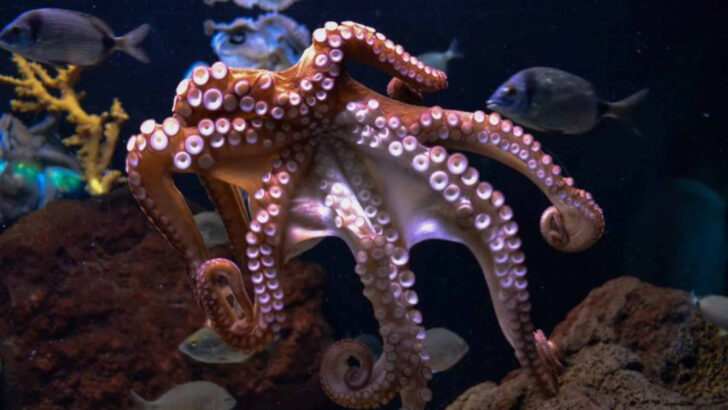An octopus could probably outsmart your dog—and it doesn’t even have a spine.
These slippery geniuses have been caught solving puzzles, escaping tanks like seasoned criminals, and even using tools to get what they want. With nine brains working at once, they navigate the world like aliens who somehow ended up in the ocean.
Some can open jars from the inside, others throw objects at enemies with shocking precision, and a few have been known to mimic other species so well they become practically invisible. If that doesn’t scream intelligence, what does?
Get ready to have your mind blown by 14 feats that prove octopuses aren’t just smart—they might just be plotting something.
Problem Solving
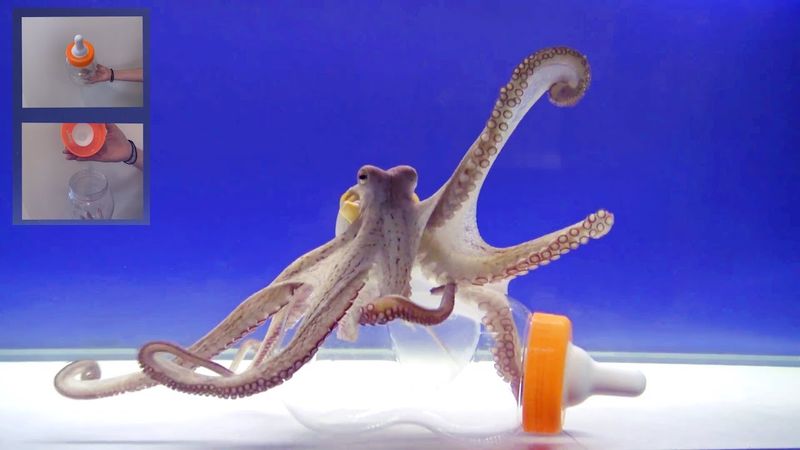
Octopuses have a knack for solving problems, displaying skills that rival many pets. In aquariums, they’ve been seen opening jars to reach food inside. Their brain power allows them to understand the concept of unscrewing lids, showcasing a level of cognitive function not often observed in marine life.
Their curiosity and determination to solve challenges demonstrate their intelligence. They can navigate mazes and remember solutions to complex problems, proving their memory and learning capabilities are exceptional. This mental agility isn’t just for survival; it’s a testament to their sophisticated minds.
Tool Use
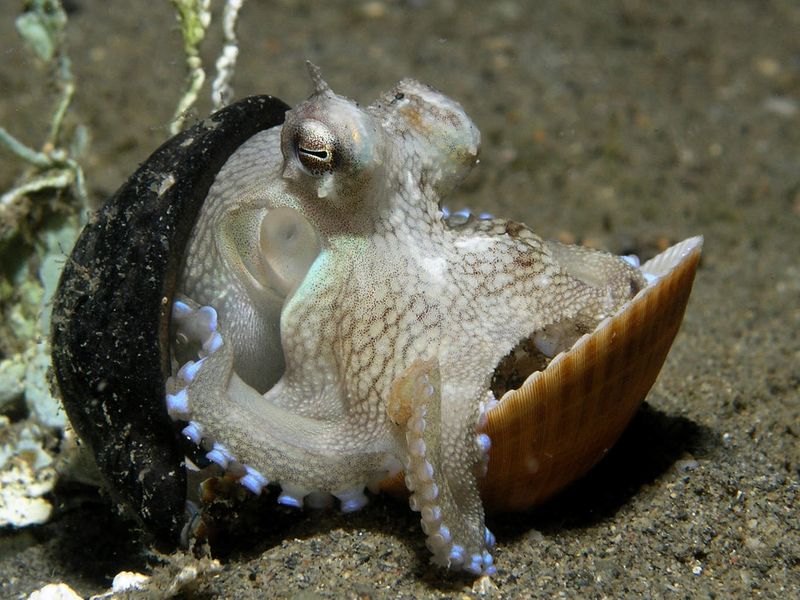
Unlike most marine creatures, some octopuses use tools in the wild. The veined octopus, for example, collects coconut shells and uses them for shelter, dragging them across the ocean floor. This behavior showcases forward-thinking and strategic planning.
Creating a makeshift home out of found objects highlights their adaptability and resourcefulness. Such intelligent behavior is rare in the animal kingdom, particularly among invertebrates. These actions demonstrate the octopus’s ability to manipulate their environment to suit their needs, illustrating a sophisticated level of cognitive function not commonly found in marine life.
Camouflage Mastery
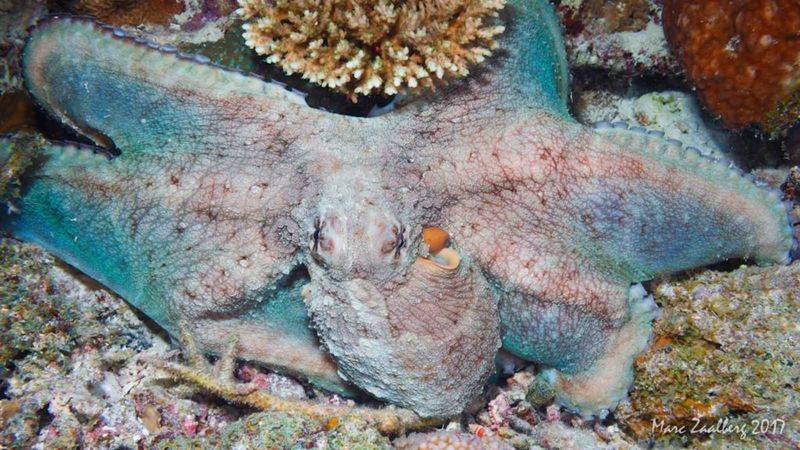
Octopuses are masters of disguise, capable of changing color and texture to blend into their surroundings seamlessly. This ability is not just for predator evasion; it also demonstrates advanced neural control and perception.
Their skin contains specialized cells called chromatophores, allowing them to mimic the colors and patterns of their environment. This rapid transformation requires complex brain functions and quick decision-making. Their camouflage skills are a testament to their sensory perception and neurological sophistication, making them one of the most intelligent sea creatures in terms of environmental interaction.
Escape Artists
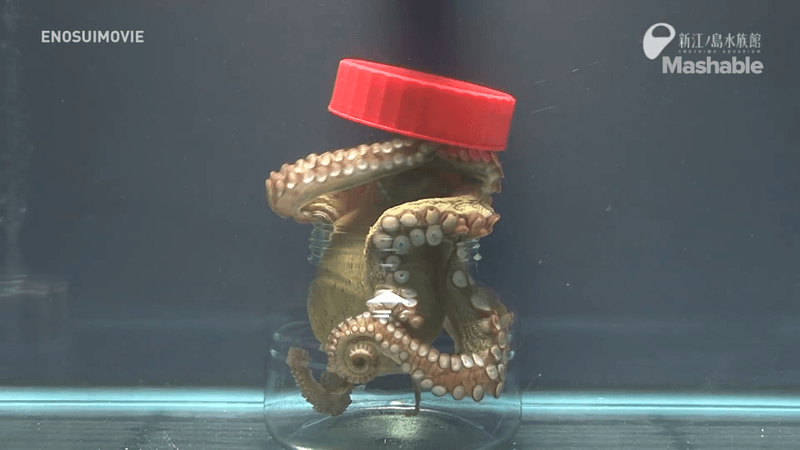
Octopuses often escape from tanks, showcasing their problem-solving skills and tenacity. These escapades highlight their ability to understand their environment and find weaknesses in containment.
An octopus can squeeze through tiny openings, thanks to its flexible body, and navigate obstacles to find an exit. This behavior demonstrates their spatial awareness and determination. Their escape artistry is not just a physical feat but also a mental challenge they often overcome, further proving their intelligence and capability to outwit constraints imposed by their surroundings.
Play Behavior
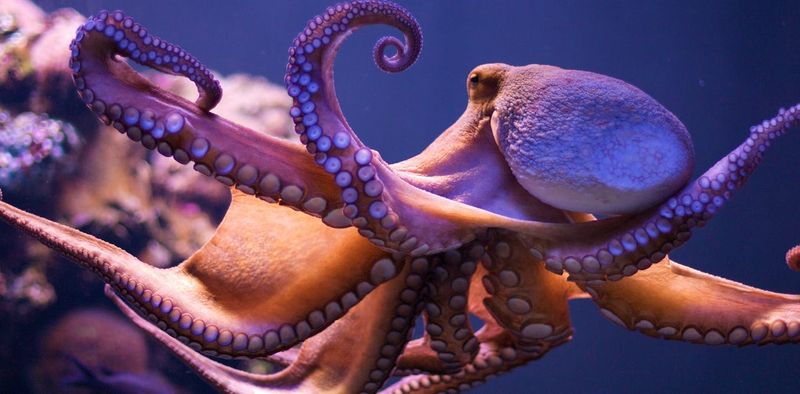
Play is a sign of intelligence and octopuses engage in playful activities. They have been observed interacting with floating objects, such as bottles or toys, in a manner akin to play seen in mammals.
This behavior indicates not only curiosity but a level of cognitive engagement that involves learning through exploration and manipulation. Octopuses use play to experiment with their environment, honing skills that may be beneficial for survival. Their playful antics are not just for amusement, but a demonstration of exploratory behavior and adaptive intelligence, reflecting their complex personalities.
Complex Nervous Systems
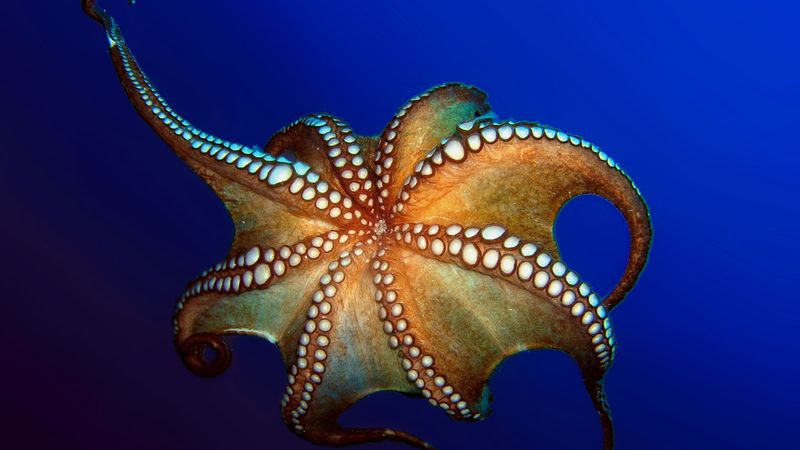
Octopuses boast complex nervous systems, with two-thirds of their neurons located in their arms. This decentralized nervous system allows for independent arm movement, enabling them to multitask and perform intricate actions.
Their brain’s structure is unique among invertebrates, supporting sophisticated behaviors and advanced problem-solving skills. Each arm can taste, touch, and manipulate objects, acting autonomously while still being connected to a central brain. This neurological complexity is a cornerstone of their intelligence, contributing to their extraordinary ability to adapt and thrive in diverse environments.
Memory Skills
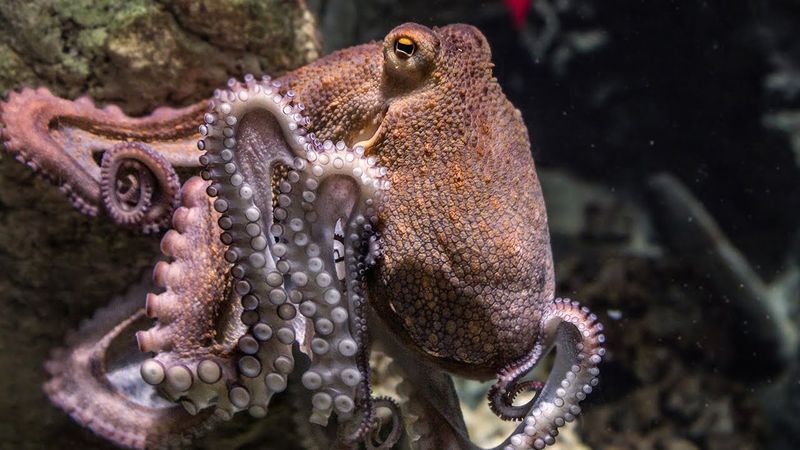
Octopuses possess impressive memory skills, which play a crucial role in their intelligence. They can remember solutions to puzzles and retain information over time, which aids in navigation and survival.
Studies have shown that octopuses can recall past experiences and use this knowledge to make decisions. Their ability to learn from mistakes and successes is indicative of a high level of cognitive function. Memory is vital for adapting to changing environments, and octopuses excel in this area, showcasing their capability to learn and apply information effectively.
Social Interaction
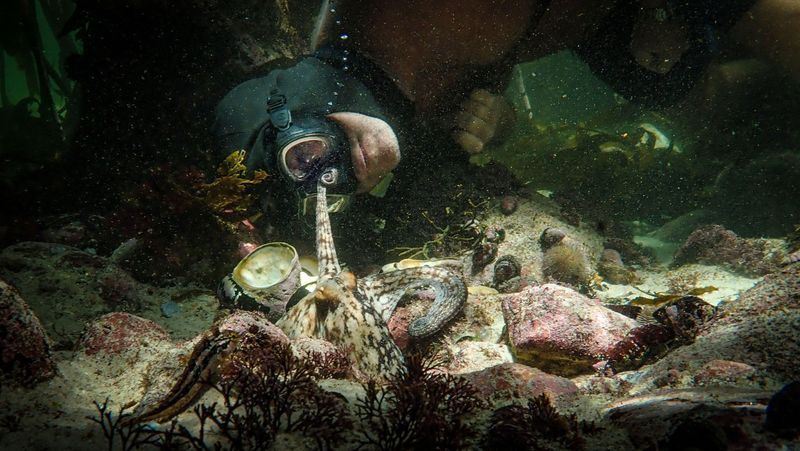
Though primarily solitary, octopuses exhibit intriguing social behaviors when they do interact. These include mating rituals, signaling, and occasional cooperation.
Their communication involves body language and color changes, demonstrating awareness and intention. Such interactions require an understanding of social cues and adaptability in behavior. While not social in the traditional sense, their ability to engage with others when necessary highlights a complex level of social intelligence, providing insights into their understanding of their peers and their environment.
Regeneration
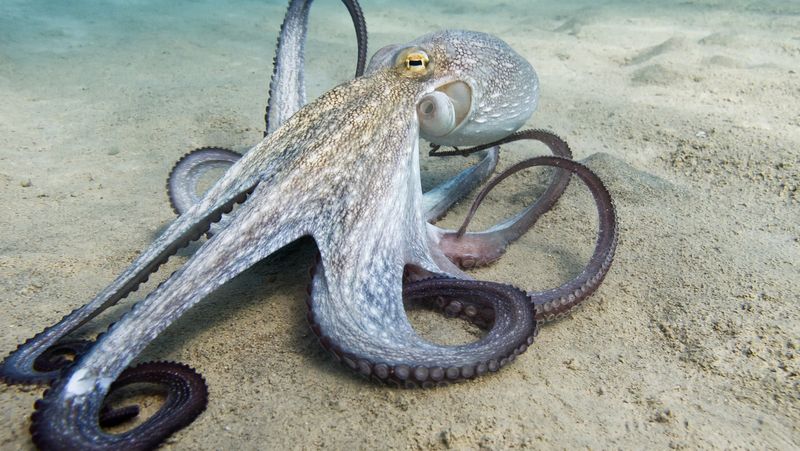
Octopuses can regenerate lost arms, an ability that exhibits remarkable biological intelligence. This regeneration process is not just a physical feat but involves complex cellular mechanisms and resource allocation.
The capability to regrow limbs suggests a sophisticated understanding of their body and how to repair it. This biological intelligence allows them to recover from injuries and continue their daily activities without significant hindrance. The octopus’s regenerative abilities underscore their resilience and adaptability, contributing to their reputation as intelligent and resourceful creatures.
Learning by Observation
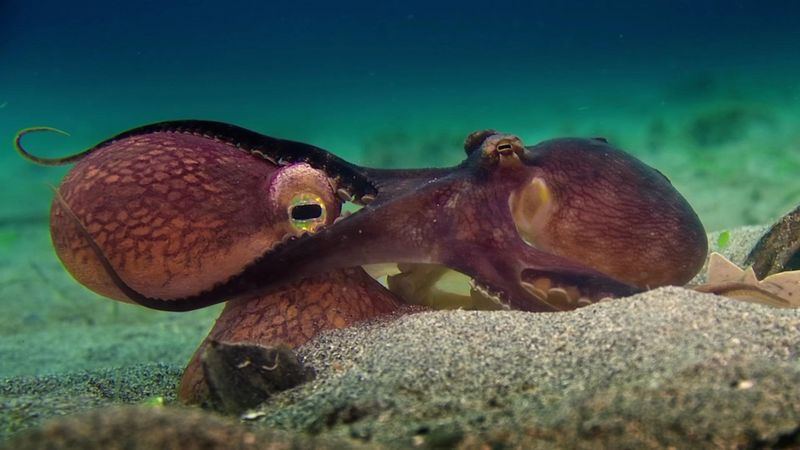
Octopuses can learn by observation, a trait seen in highly intelligent animals. They have been observed watching other octopuses solve problems and then replicating the solutions themselves.
This ability to learn from others’ experiences is a sign of advanced cognitive skills. It allows octopuses to acquire new knowledge without direct experience, enhancing their adaptability. The capacity to observe and learn demonstrates a level of intelligence that facilitates survival in complex environments, highlighting the octopus’s capability to benefit from social and environmental interactions.
Sensory Perception
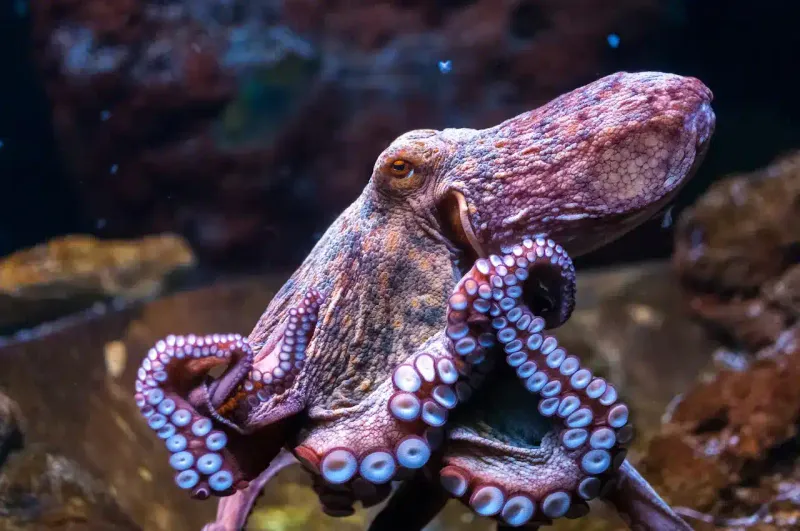
An octopus’s sensory perception is highly acute, enabling them to detect changes in their environment with precision. Their tentacles are equipped with sensors that can taste and feel, providing them with a wealth of information.
This sensory richness allows them to navigate their surroundings and interact effectively with their environment. Their ability to process sensory data rapidly and respond appropriately is a testament to their high-level intelligence. The octopus’s sensory capabilities are integral to their survival, illustrating their adaptability and the advanced neural processes that support their everyday activities.
Cognitive Flexibility
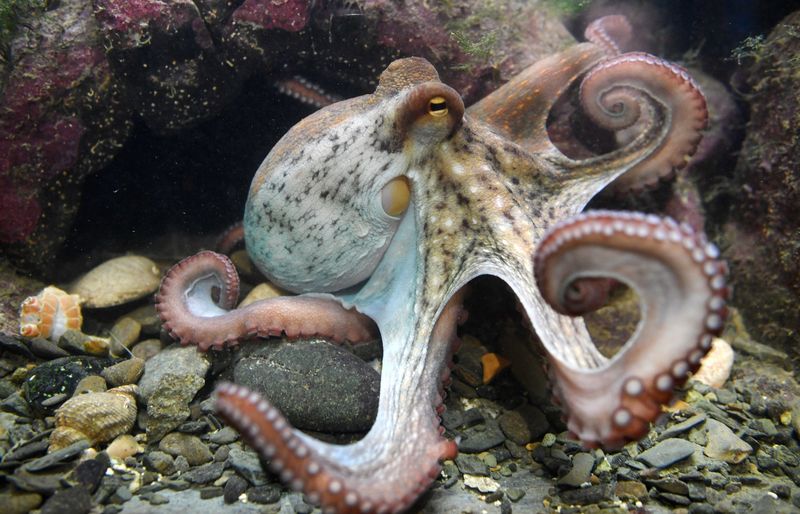
Cognitive flexibility in octopuses is evident through their adaptive behaviors in unfamiliar situations. They can quickly alter their strategies to solve problems or escape threats.
This adaptability is crucial in the wild, where conditions can change rapidly. Octopuses demonstrate the ability to switch tactics and learn from new experiences, showcasing their mental agility. Their cognitive flexibility is a key component of their intelligence, allowing them to respond to challenges dynamically and effectively, thus enhancing their survival prospects in diverse and unpredictable environments.
Communication Skills
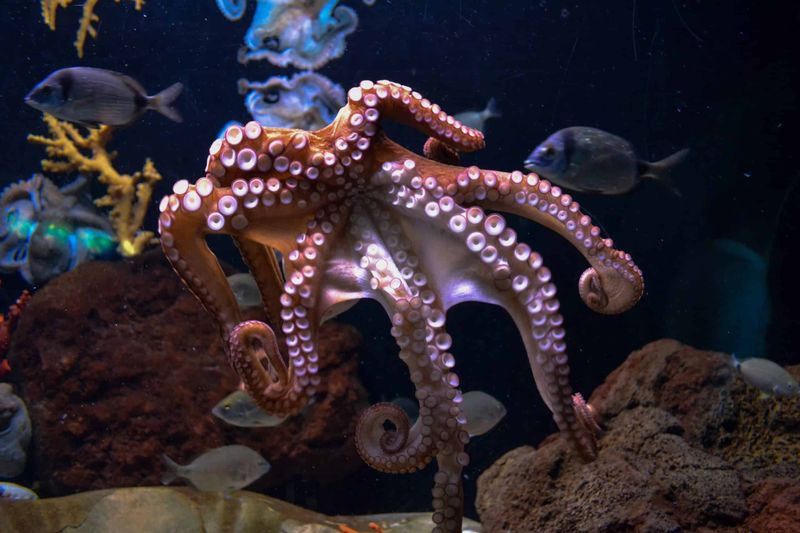
Octopuses communicate through a fascinating language of color and texture changes. This form of communication is intricate, involving sophisticated neural control to convey messages.
They use this ability to signal intentions, warn predators, or attract mates. The complexities of this communication method highlight their intelligence, as it requires precise control over their body and an understanding of the context in which they are communicating. This non-verbal communication showcases the octopus’s ability to convey complex messages, further proving their place among the most intelligent marine animals.
Environmental Awareness
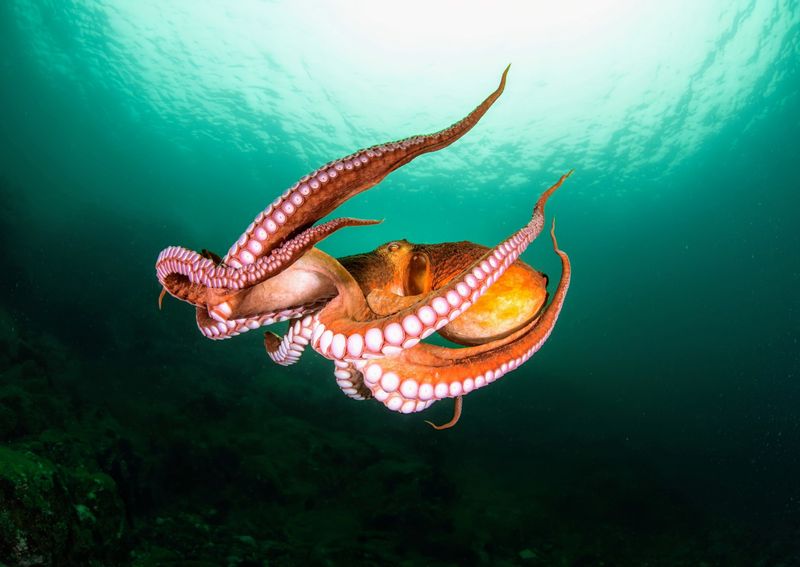
Octopuses demonstrate exceptional environmental awareness, interacting with their ecosystems in mindful ways. They are capable of modifying their surroundings to suit their needs, such as rearranging rocks or hiding within specific habitats.
Their understanding of their environment is reflected in their ability to camouflage, hunt efficiently, and avoid dangers. This keen awareness is a testament to their intelligence, enabling them to thrive in varied and often challenging conditions. Their interaction with their environment is not just instinctual but involves a conscious assessment of the best ways to utilize their surroundings.

